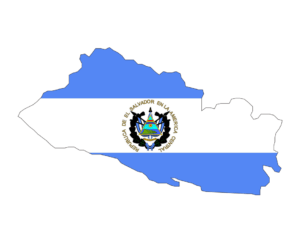
Over the 93-year history of the International Social Service network, we have witnessed numerous shifts in immigration policy, often causing the separation of families across international borders. Throughout these shifts, we have maintained our focus on reconnecting children and families separated across borders to needed social services by keeping the best interest of the child at the center of our decision making. The recent termination of Temporary Protected Status (TPS) for El Salvadorans is one example of an immigration policy that will disrupt families and require us to implement repatriation and reintegration procedures for families being returned.
TPS was first granted in 2001 to citizens of El Salvador living in the US. Today, U.S.-born children of Salvadoran TPS holders range from zero to 17 years old and now we’re left asking, what will happen to the thousands of them when their caregivers lose their legal status? What about the outcome for those families choosing to stay together and returning to a country they haven’t seen in years or decades? These are questions that must be addressed by social workers and child welfare organizations in order to meet the needs of children and families facing troublesome situations.
While some children and youth may choose to stay in the U.S. to continue their education, they risk losing the stability of parental care that is crucial to academic success. Relatives or other caregivers will be asked to take on the financial and care taking responsibilities of additional children, straining already limited resources. Without additional supports, some children and youth will lose the security that fosters the ongoing development of positive social and emotional skills. This increases the risk of children entering into the U.S. child welfare system.
Families returning to the Northern Triangle (Guatemala, Honduras and El Salvador) are facing immense challenges ranging from economic security, neighborhood safety, integration into schools, integration into the workforce, accessing medical systems, and adjusting to community life in an unfamiliar place. ISS-USA has seen an increase in requests for services in the Northern Triangle as returning parents seek custody of their children in the U.S., and as state child protection agencies encounter children with deported parents. By working with government and non-government partners in El Salvador and elsewhere in the region, ISS-USA helps these families reconnect in a way that is safe, well-planned, and sustainable.
One example of the services ISS-USA provides for separated families is through brothers Joaquin and Nicolas, who were born in the US. Their father, a Mexican citizen, facing fears of deportation and fewer work opportunities decided to relocate to Mexico ahead of what he fears is imminent deportation. He left the boys in the care of their mother, who had a history of substance abuse. Soon after their father left, Joaquin and Nicolas were taken into care due to neglect and abuse from their mother who had returned to using. ISS-USA helped contact the father and arrange for a home study in Mexico, where he found work at a factory where his English skills have proven to be an asset. Joaquin and Nicolas were returned to their father’s care, are enrolled in school, and are adjusting well to their new home.
Like Joaquin and Nicolas, children and families need social service help on both sides of the border to plan their return and access needed services upon arrival. Here are four ways social workers and social service providers can support families in this situation:
1) Help identify families at risk of separation and support their access to reliable, up to date information to help them create a plan for a disruption. This includes assigning temporary custody in the event of detention or deportation.
2) In the event that children are taken into protective custody following the detention or deportation of a parent, social workers can help identify family resources both domestically and internationally to support permanency planning in the best interest of the child. The ISS network regularly locates and notifies family members overseas when a child is taken into care and helps engage them in permanency planning. Deported or non-custodial parents have a right to participate in permanency planning of their children, including requesting placement with them in their country of return as part of concurrent planning.
3) Ensure the homes and caretakers to whom children will be placed are safe and appropriate, and there are mechanisms in place to support the long term integration into family and community life. ISS partners help identify schools, medical facilities, behavioral and mental health providers, and other community resources to which the child (and family) would re-locate. Assessments conducted by local social workers provide US judges and family courts with child-specific information to make informed decisions.
4) Support family reunification and reintegration through ongoing case management and communication with service providers in the country of departure and the country of arrival. ISS partners can help connect families to resources in their local communities to sustain placement and prevent further separation.
As advocates, we can demonstrate the reasons why extending TPS is a good for children, families, and communities but as social service providers, we must be prepared to accompany families as they make difficult decisions without imposing our own assumptions. By ignoring the reality of many forced returns or dismissing a voluntary decision to rejoin family, we are missing an opportunity to protect thousands of children.
